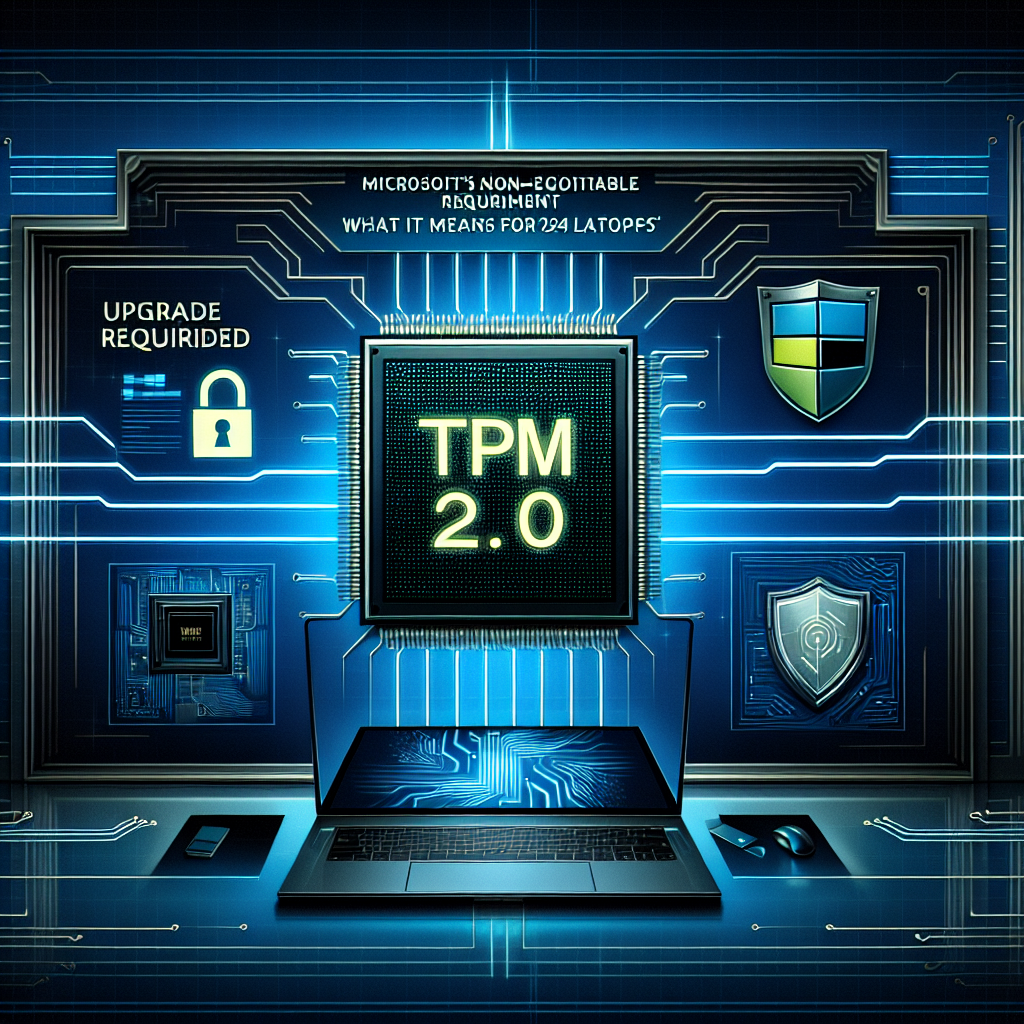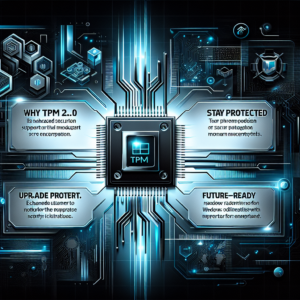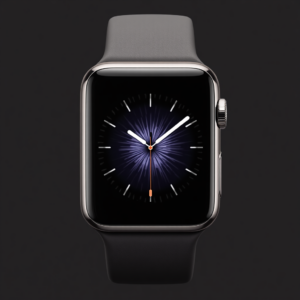Microsoft’s Non-Negotiable TPM 2.0 Requirement for Windows 11: What It Means for 2024 Laptops

As the digital landscape evolves, security remains a top priority for tech companies, with Microsoft leading the charge with its Windows operating system. In 2024, Windows 11 has become the standard for users upgrading or purchasing new PCs, but it comes with a key requirement that may have surprised some: the inclusion of TPM 2.0 (Trusted Platform Module 2.0). Microsoft has been adamant that this hardware-based security feature is non-negotiable for Windows 11 compatibility.
This decision to make TPM 2.0 mandatory for all devices running Windows 11 has significant implications for laptop buyers, manufacturers, and enterprise environments. In this article, we will explore why TPM 2.0 is required, its impact on laptop design and security, and what consumers can expect when purchasing new laptops in 2024.
What is TPM 2.0?
TPM 2.0 is a hardware-based security solution that is embedded directly into a device’s motherboard, providing a secure foundation for various cryptographic operations. It is an advanced version of the TPM 1.2 standard, offering increased capabilities, improved security features, and better compliance with modern encryption protocols. TPM 2.0 enhances a device’s security by storing sensitive data such as passwords, encryption keys, and digital certificates in a secure, isolated environment.
Core Functions of TPM 2.0
- Secure Boot: This feature ensures that the device’s firmware and operating system haven’t been tampered with. When a system is powered on, TPM 2.0 checks that only trusted and authorized code is executed, reducing the risk of malware and other types of unauthorized software.
- Disk Encryption: One of the most commonly used features of TPM 2.0 is its support for disk encryption technologies such as BitLocker. BitLocker, a Windows tool, encrypts data stored on the device’s hard drive. TPM 2.0 ensures that only authorized users can access this encrypted data, preventing unauthorized access even if the device is stolen.
- Digital Rights Management (DRM): TPM 2.0 plays an important role in managing the rights and licenses of digital content, such as videos, music, and software. It helps ensure that content is accessed only by legitimate users and devices.
- Hardware Root of Trust: By embedding security directly into the device’s hardware, TPM 2.0 ensures that the device’s entire security system starts from a trusted foundation. This provides a level of protection that is far more difficult to circumvent than traditional software-based security methods.
The goal of TPM 2.0 is to reduce the vulnerability of devices to security threats such as data breaches, cyber-attacks, and malware, which are increasingly targeting sensitive information stored on personal devices. With TPM 2.0, data is protected at the hardware level, making it far more difficult for attackers to gain unauthorized access.
Why TPM 2.0 is Non-Negotiable for Windows 11
In late 2020, Microsoft announced that it would require TPM 2.0 for all Windows 11 devices. This move was part of a larger effort to bolster security and meet the growing demands for privacy and protection in an increasingly digital world. But why exactly has Microsoft made TPM 2.0 a non-negotiable requirement for Windows 11?
Enhanced Security Posture
One of the primary reasons for the inclusion of TPM 2.0 is its ability to provide robust security. In today’s interconnected world, the need for secure systems is more critical than ever before. With the rise of cybercrime, data theft, and identity theft, hardware-based security such as TPM 2.0 offers a defense mechanism that is significantly more difficult to compromise than software-based alternatives.
For instance, in a ransomware attack, malware can exploit software vulnerabilities, lock access to important files, and demand payment. However, with TPM 2.0, the encryption keys required to unlock these files are stored in a hardware chip, which is far more resilient against these types of attacks. This additional layer of protection is a significant part of Microsoft’s vision for Windows 11.
Compliance with Security Standards
Governments, enterprises, and organizations around the world are increasing their cybersecurity requirements. Microsoft’s decision to mandate TPM 2.0 helps to ensure that Windows 11 devices meet international security standards and regulations. For instance, businesses in sectors like finance, healthcare, and government are often required to adhere to strict regulations around data security. TPM 2.0 enables compliance with these regulations, such as the General Data Protection Regulation (GDPR) in Europe or FISMA (Federal Information Security Management Act) in the United States.
By including TPM 2.0, Microsoft ensures that users and businesses are operating within the guidelines of modern security frameworks, making devices more secure and trustworthy.
Hardware and Software Integration
TPM 2.0 is a hardware-based security solution, which provides the best protection compared to software-based solutions. While software solutions like antivirus software and firewalls can help prevent attacks, they are not foolproof. Malware can potentially bypass these defenses if vulnerabilities exist in the operating system or the application software. However, hardware-based TPM 2.0 security is built into the device, making it much harder for attackers to circumvent the system.
With the deep integration of TPM 2.0 into Windows 11, Microsoft is aligning both hardware and software components to work together seamlessly. This integration ensures that all aspects of a device’s security — from the boot process to the data storage — are tightly controlled, offering a more secure user experience.
Impact on 2024 Laptops: What You Need to Know
As Microsoft continues to enforce the TPM 2.0 requirement for Windows 11, it has created a ripple effect in the laptop market, particularly for consumers and businesses looking to purchase new machines in 2024.
1. TPM 2.0 Becomes Standard in 2024 Laptops
Initially, TPM was a feature found primarily on business-grade laptops or high-end models. However, with Microsoft’s mandatory TPM 2.0 requirement for Windows 11, this security standard is now being implemented across nearly all devices, including consumer laptops. In 2024, TPM 2.0 will be a standard feature on laptops, making it an essential component of all new PCs.
For buyers, this means that TPM 2.0 will not be an optional feature but an expected one. As such, you can rest assured that any laptop purchased for Windows 11 will come equipped with this advanced security technology.
2. Security and Privacy Considerations
For privacy-conscious consumers, the inclusion of TPM 2.0 means greater peace of mind. TPM 2.0 provides hardware-based encryption, protecting data even in the event of physical theft. Additionally, Windows 11‘s integration with TPM ensures that sensitive information, including passwords and biometric data, is stored securely and cannot be accessed by unauthorized users or malicious actors.
Given the rising threats in cybersecurity, it’s becoming increasingly important to invest in devices with hardware-level protection. TPM 2.0 ensures that your personal information remains private and protected, whether you’re working remotely or traveling with your laptop.
3. Impact on Laptop Prices and Features
As with any new standard, the inclusion of TPM 2.0 in 2024 laptops may lead to a slight increase in price. While TPM 2.0 itself is not a particularly expensive component, laptops designed for high security often come with other advanced features, such as faster processors, improved displays, and better build quality. As a result, you may see slightly higher prices for 2024 Windows 11-compatible laptops.
However, it’s important to note that the price increase should be viewed as an investment in data protection. Given the growing frequency of cyber-attacks and the potential cost of data breaches, a laptop with TPM 2.0 will offer long-term value in terms of security and privacy.
4. Enterprise Adoption of TPM 2.0
In enterprise environments, TPM 2.0 is even more critical. For companies that rely on secure communication, data storage, and remote access, having a fleet of laptops with TPM 2.0 ensures that corporate data remains protected. The ability to remotely manage and secure devices is essential for IT departments, especially as remote work continues to rise.
Best Laptops Supporting TPM 2.0 in 2024
Several laptops in 2024 are equipped with TPM 2.0 and are designed with security in mind. Here are a few top choices:
-
Dell XPS 13: A lightweight, high-performance laptop featuring TPM 2.0, making it ideal for both personal and business use. Its premium design and reliable security features make it one of the top options for Windows 11 users.
-
Lenovo ThinkPad X1 Carbon: Known for its durability and enterprise-grade security, the ThinkPad X1 Carbon is a powerful option for business professionals who require TPM 2.0 for secure operations.
-
HP Spectre x360: A versatile 2-in-1 laptop with TPM 2.0 support, offering a sleek design, powerful performance, and excellent battery life.
-
Microsoft Surface Laptop 5: Naturally, Microsoft’s own Surface Laptop lineup is also fully compatible with Windows 11 and comes with TPM 2.0 for superior security.
In 2024, Microsoft’s TPM 2.0 requirement for Windows 11 is shaping the future of laptop security. By mandating this advanced hardware feature, Microsoft is ensuring that devices running Windows 11 are better equipped to defend against emerging threats. Whether you’re an individual user or part of an organization, TPM 2.0 brings robust protection for your data, offering peace of mind in an increasingly connected world.
Visit our other website: https://synergypublish.com





